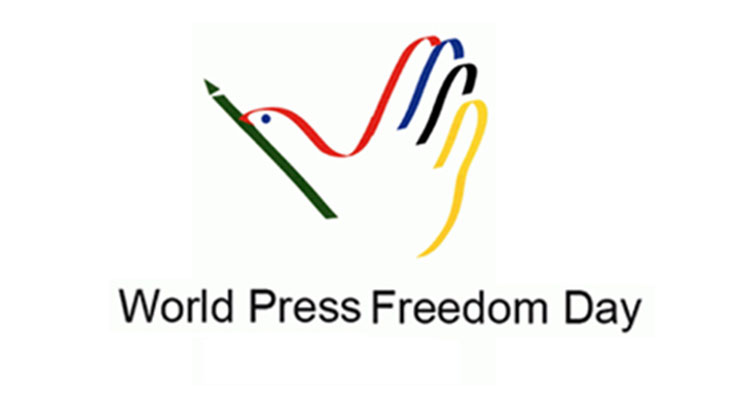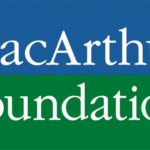The theme of this year’s World Press Freedom Day (WPFD) “Information as a public good” is a clarion call to save journalism from its endangered state due to technological, economic, and political challenges.
The UNESCO said it chose the theme to draw attention to the special role of journalism in producing news as verified information in the public interest, and to how this depends on a wider ecosystem that enables information as a public good.
- Onitsha Port yet to function, 7 months after commissioning
- How Nigerians lose millions to fraudulent real estate developers
In particular, the 2021 WPFD highlights three critical factors that inform the survival of journalism which are; the economic viability of the news media, ensuring transparency of internet platforms and enhancing the media and information literacy capacities of citizens to enable them to recognize and value, as well as defend and demand, journalism as a vital part of information as a public good.
The 2021 WPFD commemorates 30 years of the Windhoek Declaration for the Development of a Free, Independent and Pluralistic Press issued by African journalists at the end of a UNESCO organized summit at the Namibian capital following the collapse of the Berlin Wall signifying the end of the Cold War.
The Declaration which was endorsed at the UNESCO general conference at its 26th session in 1991 stated that the establishment, maintenance and fostering of an independent, pluralistic and free press is essential to the development and maintenance of democracy in a nation, and for economic development.
From 1993 to date, the United Nations has been marking the WPFD on the anniversary of the declaration to remind governments of the need to respect their commitment to press freedom as well as provide an opportunity for media practitioners to reflect on issues of press freedom and professional ethics.
Thirty years later, the pressing issue is the need to recognize information as a public good that is vital not only for the sustenance of democracy but also for economic and social well-being as evidently highlighted by the Covid-19 pandemic.
We now have access to a massive overdose of disinformation, misinformation, hate speech, as well as gossip and entertainment threatening to overwhelm the verified information produced by journalists. This makes it difficult for citizens to meaningfully contribute to their own governance and to navigate through the realities of modern life.
However, paying attention to the three critical factors that underline the position of information as a public good might very well mitigate the existing challenges.
Economic viability of the news media
According to a Hausa saying “a hung cock doesn’t crow”. Simply put, economic dependence negates the editorial independence of the media.
News media organizations are facing declining income due to so many structural changes in the media industry even before the advent of the Covid-19 pandemic.
As economic activities have contracted due to the pandemic, advertisers have shifted their reduced budget to online platforms such as Google and Facebook that are more efficient in reaching their target customers. The dwindling fortunes of news media organizations make them susceptible to becoming captured by governments or even individual politicians and moneybags thereby comprising their editorial independence.
In addition, news media organizations have become notorious for underpaying or even non-paying their staff. This normalizes the acceptance of gratification from news sources and makes journalists vulnerable to promoting sectional, party, ethnic or religious agenda to make ends meet.
Even those organizations that pay a living wage may not be in a position to ensure the safety of journalists or provide them with adequate insurance. This ensures self-censorship among journalists as they fear exposing themselves to unnecessary danger without the protection of their organizations or government.
The economic pressures on media organizations have also resulted in hiring less qualified journalists and overworking them. This leads to debilitation in the quality of output and the neglect of investigative journalism as quantity trumps quality.
Another dimension to the weak financial status of most news media organizations is the overdependence on press releases by government and corporate entities that have an agenda to push. This leads to the silencing of the voiceless majority of people who do not have the resources to package information in an easily digestible manner for the press.
Power economic power of news media organizations also forces them to neglect local news that is vital to a section of the community but may not generate enough clicks on the internet to attract income.
Transparency of internet platforms
The second critical factor in recognizing information as a public good is the need to ensure transparency in the operations of the giant internet platforms that are used for news discovery and distribution.
Today’s reality is that only a handful of news media across the globe have the power to attract audiences directly to their websites. For the majority of cases, audiences stumble upon their output either through search engines or social media platforms whose algorithms are beyond their control.
Not only that, the internet platforms’ business model is built on providing interesting information to their users based on their previous usage history. They, therefore, facilitate the dissemination of hate speech, disinformation and misinformation.
Moreover, the internet platforms are not effective in distinguishing between verified information produced by professional journalists and other types of content that is aimed at misleading users.
The net effect of this business model is to reduce the reach of useful information and sometimes induce news organizations to dumb down their content using sensationalism and click-baiting strategies to compete favourably with other content producers.
Even though the internet platforms are making some efforts at combating hate speech and disinformation to the extent of banning a sitting President of the United States of America, their efforts leave a lot to be desired.
Empowering citizens through media and information literacy
The third, and by far the most important factor in ensuring the place of information as a public good is to empower citizens to recognize the value of and demand for quality journalism, as well as defend reporters from attacks and harassment. This can only be achieved through media and information literacy.
In this time of unprecedented flow of information, misinformation, and disinformation, as well as other kinds of content such as entertainment and gossip, citizens risk being confused or manipulated.
Media and information literacy skills are therefore vital in equipping citizens to find and evaluate the credibility of online messages, make informed decisions, and take actions to counter attempts to shape young people’s identities by social media and advertising.
According to the UNESCO 2016 yearbook, Media and Information Literacy “empowers people to be curious, to understand their information needs, to search, to critically evaluate, to use and to contribute information and media content wisely. It calls for competence in knowing one’s rights online; combating online hate speech and cyberbullying, and understanding the ethical issues surrounding the access and use of Information”.
In order to address these three critical issues for the survival of journalism, governments should promulgate new policies to ensure media viability while media organizations need to be innovative in finding sustainable means of income that do not threaten their editorial independence.
Secondly, governments need to collaborate with stakeholders in academia, civil society, fact-checking organizations, and the media industry to ensure transparency in the operations of internet platforms.
Finally, media and information literacy should be incorporated into the educational system to enable citizens to deal with the deluge of confusing and misleading information available online.
Failure to tackle these three critical factors will jeopardize the sustainability of journalism, weaken the democratic system, and render citizens powerless in navigating the terrains of modern life.

 Join Daily Trust WhatsApp Community For Quick Access To News and Happenings Around You.
Join Daily Trust WhatsApp Community For Quick Access To News and Happenings Around You.


